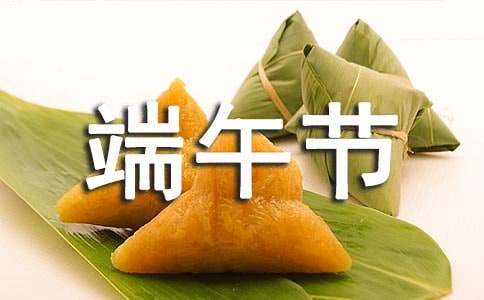- 相關(guān)推薦
中國傳統(tǒng)文化:端午節(jié)
端午節(jié)起源于中國,最初是中國人民祛病防疫的節(jié)日,吳越之地春秋之前有在農(nóng)歷五月初五以龍舟競渡形式舉行部落圖騰祭祀的習(xí)俗;后因詩人屈原在這一天死去,便成了中國漢族人民紀(jì)念屈原的傳統(tǒng)節(jié)日;部分地區(qū)也有紀(jì)念伍子胥、曹娥等說法。以下是小編為大家搜索整理的中國傳統(tǒng)文化:端午節(jié),希望對正在關(guān)注的您有所幫助!更多精彩內(nèi)容請及時關(guān)注我們應(yīng)屆畢業(yè)生考試網(wǎng)!

The Dragon Boat Festival
端午節(jié)
The 5th day of the 5th month of the lunar year is animportant day for the Chinese people. The day called“Duan Wu”(meaning Day of Right Mid-Day) isobserved everywhere in China.
每年農(nóng)歷的五月初五,是中國傳統(tǒng)的端午節(jié),又稱端陽節(jié)、重午節(jié)、天中節(jié)等。
This unique Chinese celebration dates back toearliest times and a number of legends explain its origins.
過端午的習(xí)俗由來已久,大約開始于春秋戰(zhàn)國之際。但是關(guān)于端午節(jié)的始源, 卻有不同的說法。
The best known story centers on a patriotic court official named Qu Yuan, of the State of Chuduring the Warring States Period more than 2, 000 years ago.
而其中流傳最廣、影響最大的是紀(jì)念屈原一說。
In a last desperate protest, he threw himself into the river and drowned.
屈原自感無力挽救楚國的衰亡,于五月五日自沉汨羅江而死。
Later Qu Yuan’s sympathizers jumped into boats, beat the water with their oars and made ricedumplings wrapped in reed-leaves (zongzi) and scattered them into the Miluo River in the hopethat fish in the river would eat the rice dumplings instead of the body of the deceased poet.
老百姓很同情屈原的遭遇,為了避免屈原的尸體被魚鱉吞食,便于五月五日這一天劃著龍舟在江中驅(qū)趕魚鱉,并將包好的粽子投放江中來喂魚鱉,以保護屈原的尸體。
【中國傳統(tǒng)文化:端午節(jié)】相關(guān)文章:
中國傳統(tǒng)文化詞匯短語11-12
中國的端午節(jié)(法語閱讀)09-24
中國端午節(jié)(法語閱讀)08-05
保護中國傳統(tǒng)文化英語作文08-09
中國傳統(tǒng)文化詞匯短語集合09-17
傳統(tǒng)文化與法治中國的知識點10-23
中國傳統(tǒng)文化的英文句子07-19